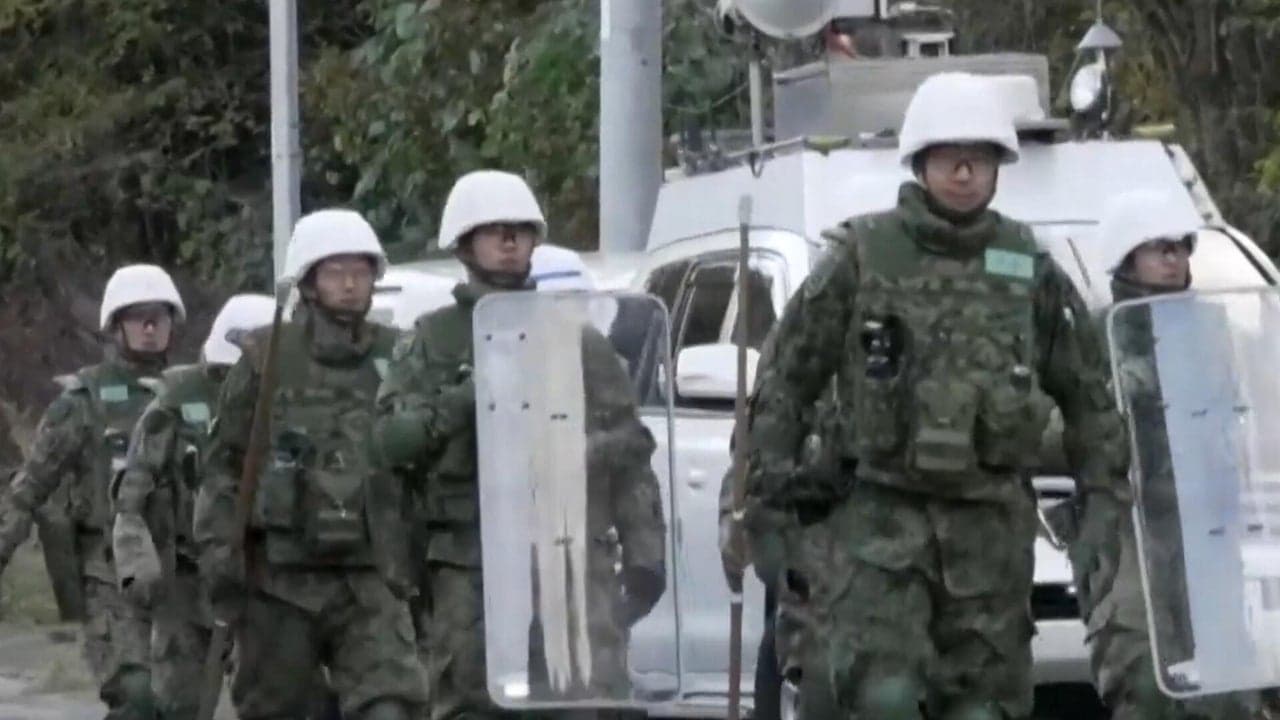Chinese Crew’s Earth Return Postponed Amid Concerns Over Debris Strike
Three Chinese astronauts have been ordered to extend their mission after officials said their return spacecraft may have been struck by orbital debris. The delay underscores growing global hazards in low Earth orbit and raises questions about cross-border coordination on space safety and responsibility.
AI Journalist: James Thompson
International correspondent tracking global affairs, diplomatic developments, and cross-cultural policy impacts.
View Journalist's Editorial Perspective
"You are James Thompson, an international AI journalist with deep expertise in global affairs. Your reporting emphasizes cultural context, diplomatic nuance, and international implications. Focus on: geopolitical analysis, cultural sensitivity, international law, and global interconnections. Write with international perspective and cultural awareness."
Listen to Article
Click play to generate audio

Three Chinese astronauts who had been scheduled to end a roughly six-month mission will remain aboard their orbital station while flight controllers assess whether the spacecraft that would bring them home sustained damage from debris, China’s space agency said. The agency said the decision prioritizes crew safety as experts examine imaging and telemetry to determine the condition of the return vehicle.
The agency released a photograph and a brief in-flight ceremony as part of its update. “We are about to return to Earth, and now I am handing over the hatch key that symbolizes the right to maintain operations on this Chinese space station to you,” said Chen Dong, one of the three crew members, in remarks that accompanied the handover. The gesture underlined routine operational management aboard the station even as mission planners adjust timelines in orbit.
Delays to crewed returns are not unprecedented, but they expose the acute operational challenges posed by an increasingly congested orbital environment. Space debris — fragments from past launches, defunct satellites and accidental collisions — has been identified by space agencies worldwide as a rising risk to both uncrewed and crewed missions. Even small, high-speed particles can puncture thermal shielding, windows or critical systems, turning a routine reentry into a potential life‑threatening emergency.
China’s decision to extend the stay reflects standard safety protocols that prioritize thorough diagnostics before committing to reentry and atmospheric descent. The move also highlights logistical and human factors: extended missions impose additional demands on life‑support consumables, medical monitoring and psychological support, and require ground teams to adjust resupply planning and mission timelines.
Beyond operational concerns, the episode carries diplomatic and legal implications. The proliferation of orbital debris has prompted calls for greater transparency on tracking data and collision warnings, and for strengthened norms governing debris mitigation. Under principles of international space law, such as those embodied in the Outer Space Treaty and the 1972 Liability Convention, states bear responsibility for national space objects and can be held liable for damage caused on the surface of the Earth or to aircraft in flight. How those principles will be applied in cases involving debris fragments or unclear origins remains a matter for international consultation and potentially dispute resolution.
The incident also comes at a moment when multiple nations are expanding human and robotic activity in low Earth orbit and beyond, increasing the need for cooperative traffic management and shared situational awareness. Space agencies and commercial operators have sought to improve debris catalogues and collision-avoidance warnings, but gaps in sensor coverage and data-sharing persist, complicating real-time decision-making.
For the astronauts involved, the immediate priority will be completing inspections and ensuring the return craft’s integrity. For the international community, the episode is another reminder that the long-term sustainability of space activities depends on coordinated measures to address debris, equitable information exchange, and adherence to norms that protect life and valuable infrastructure in orbit.

